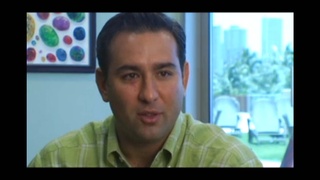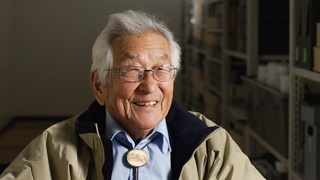Interviews
Life as a student in São Paulo (Japanese)
(Japanese) It was the night of September 6th, 1922, when I left for Sao Paulo. The reason I came to Sao Paulo was for education; I wanted to go to school so bad that twice I sneaked out of my uncle’s house during the night, but got caught both times… so I couldn’t accomplish my goals—my dream was put on hold until I turned 20. And at 20 years old, in 1922, I finally reached Sao Paulo.
I was at Sao Paulo University, and while teaching night school, I attended the prep program for the Mckenzie school of engineering… then, I was called over to the PTA…which later became known as the Education Expansion Committee…but anyway, I was called over to help teach Portuguese, set up prep courses for junior high school entrance exams, and basically began working as an educator. But being in Sao Paulo, I really wanted to take advantage of studying for myself, and studied hard to get accepted into the university. I really, really wanted to study engineering. But when I got accepted to Mckenzie, I was at almost the entire day, every day… and of course, I’m a struggling student if I’m not making a living outside of school… I needed time to make a living… so I wasn’t able to continue at Mckenzie, as I dropped out soon after I got accepted. Then, I entered the law program. With law, I would have more time for myself, and would be able to work my way through school, so I decided to go with that.
Date:
Location: Brazil
Contributed by:







